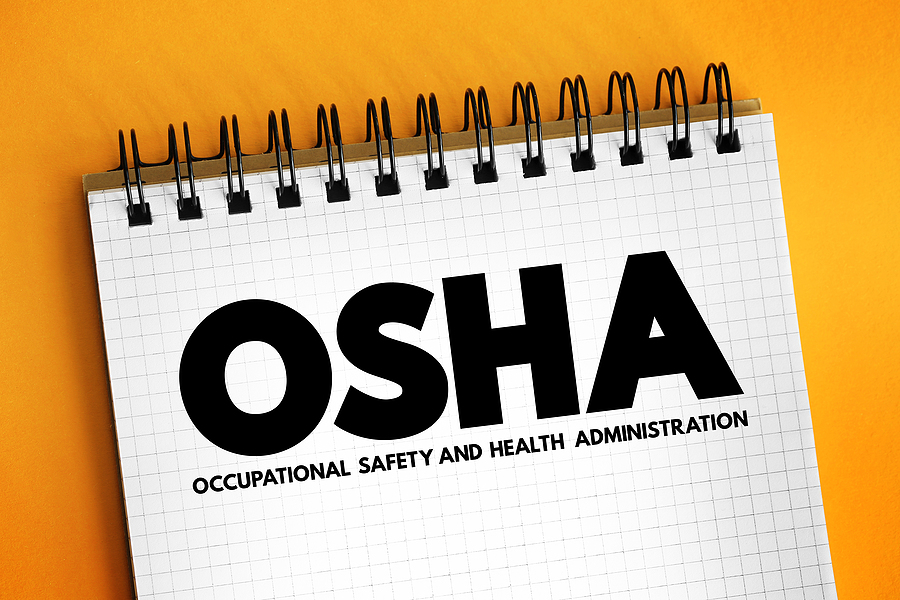OSHA 10-Hour Class Facts Explained

Have you ever stumbled upon a job ad with “Must have an up-to-date OSHA 10 certification”?
Or maybe you’ve seen mention of a “DOL card”, hinting at those wallet cards from the Department of Labor that prove you took the training.
What in the world is OSHA 10 all about?
How long does it stay “up to date” anyway?
Let’s explore to get you fully up to speed on OSHA 10 facts.
What is OSHA 10?
OSHA 10 refers specifically to the 10-hour introductory training course for general industry and construction workers.
It was introduced in 1989 as part of OSHA’s Outreach Training Program to help spread awareness of safety practices and workers’ rights.
Here are some key details about the OSHA 10 course:
- Covers basic OSHA standards, hazard identification, and risk mitigation strategies relevant to the trainee’s line of work.
- Provides broad awareness training, not specialized or task-specific instruction.
- Goal is to give workers a foundation in recognizing and responding to common workplace hazards.
- Formats include in-person classroom training or online courses.
- Online must include interactive elements like quizzes, scenarios, and skills checks.
- Trainers must be authorized by OSHA and follow strict guidelines for topics covered.
- All OSHA 10 courses teach core required subjects.
- Upon completion, DOL issues a wallet card that is valid indefinitely.
- Cards have the worker’s name, course completed, training date, and authorized trainer.
While not a certification of any kind, the card documents that the individual received relevant, baseline safety training for their industry.
OSHA 10 lays a groundwork of general health and safety knowledge.
It provides an introduction to hazard controls, protective equipment, workers’ rights, employer responsibilities, and how to report unsafe conditions.
This can help create a culture of safety at all levels of an organization.
Wondering which OSHA 10 Certification is your perfect match?
Since OSHA 10 training is tailored to specific industries and work settings, it’s important to select the right course for your needs:
OSHA 10 Construction
Covers physical and environmental hazards commonly found on construction sites like falls, electrocution, struck-by injuries, and more.
Additional focus on safety topics like scaffolding, cranes, excavations, and personal protective equipment.
Best for any construction workers or contractors.
OSHA 10 General Industry
A broad course providing a general overview of safety and health hazards present in various non-construction settings like offices, factories, warehouses, healthcare, retail, etc.
Can be further customized by trainers to focus on hazards specific to the trainees’ workplace.
Suitable for most workers outside of construction and maritime.
OSHA 10 Maritime Industry
Branch of maritime courses covering hazards on marine terminals, shipyards, vessels, and longshoring facilities.
Choice of:
Marine Terminal: hazards like struck-by vehicles, crane/lift operations, slips/falls, confined space entry.
Longshoring: cargo handling, heavy equipment, confined space, mooring tasks.
Shipyard Employment: focuses on ship breaking, repair, building, rigging, and related hazards.
OSHA 10 for Other Industries
While most non-construction industries fall under OSHA 10 General Industry, some authorized trainers offer customized courses for healthcare, oil/gas extraction, warehousing, entertainment, and other niche fields.
Verify the course content covers hazards relevant to your work.
Choosing the right OSHA 10 course ensures you get training tailored to the realities of your job.
Look for industry-specific topics like identifying risks with scaffolding, patient handling, or chemical exposures that you actually encounter at work.
An OSHA 10 card itself doesn’t specify the industry – so be sure to keep records of your training provider, materials, and topics covered for future verification.
Is OSHA 10 Required?
OSHA 10 training itself is voluntary at the federal level and does not satisfy any legal training requirements on its own.
However, a growing number of states, cities, and individual employers now mandate or expect workers in certain hazardous industries to obtain OSHA 10 certification.
Here are some key facts on OSHA 10 requirements:
- OSHA does not require it for any public or private sector employers nationally.
- OSHA standards require adequate training but don’t dictate the format.
- At state/local levels, OSHA 10 is increasingly mandated for public works construction projects or other high-hazard activities like demolition or scaffold work.
- Jurisdictions like Nevada and Connecticut require it for all construction workers on public projects.
- Others like New York City, Philadelphia, and Los Angeles require it only for workers conducting designated high-risk tasks.
- Some general industry employers, especially in manufacturing, transportation, and warehousing have made OSHA 10 mandatory for certain workers or new hires.
- Many government contractors and companies bidding for public works projects list OSHA 10 as a recommended or required certification for workers due to local laws.
- Union apprenticeships, career technical schools, and some community colleges have incorporated OSHA 10 into their training programs.
So while federally voluntary, the OSHA 10 course is becoming a default baseline expectation for workers in hazardous fields like construction and manufacturing.
It signals general training in injury and illness prevention.
Consult local OSHA offices or employers to determine precise OSHA 10 requirements relevant to your trade and jurisdiction.
Why and Where is OSHA 10 Required for Construction?
The particularly high rates of injuries, fatalities, and work-related illnesses in construction is the driving reason behind most OSHA 10 mandates at state and local levels.
Construction accounts for only 4-6% of US employment, but approximately 20% of worker deaths – over 1000 lives lost annually.
Injuries also significantly outpace national averages.
In 2020, the construction injury rate was 43% higher than the total private industry rate.
Falls, struck-by, crush, and electrical incidents are among the top causes of construction deaths and life-altering trauma.
OSHA 10 raises awareness on avoiding these “Fatal Four” hazards.
State and local OSHA 10 mandates aim to curb this disproportionate burden of construction injuries and death through basic hazard training for all workers.
Here are some examples of jurisdictions that now require OSHA 10 for public and certain private construction activities:
- Connecticut – workers on public construction projects over $100k
- Nevada – all construction workers, both public and private
- New York City – workers at designated dangerous tasks like demolition, scaffolding, elevating work platforms, steel erection
- Philadelphia – construction workers on city-funded projects
- California – Cal/OSHA recommends OSHA 10 minimum for workers on state public works contracts
- Miami-Dade County – workers on county-funded projects over $250k
While federal OSHA may not require it, construction firms and trade workers would be prudent to obtain OSHA 10 certification given its growing adoption across states and municipalities with high construction activity.
It shows a commitment and culture of safety from management down to field workers.
Does OSHA 10 Expire?
OSHA 10 completion cards themselves do not expire.
The federal OSHA Outreach Training Program does not mandate refresher training or recertification requirements for OSHA 10.
However, various state and local laws, as well as individual employer policies, do prescribe periodic renewal of OSHA 10 training – typically every 3 to 5 years.
Certain trade associations like the Associated General Contractors of America recommend retraining every 4-5 years at a minimum to stay current on regulation changes.
Where Can You Get OSHA 10 Training?
If you’re looking for OSHA 10 training, you won’t be able to get it directly from OSHA itself.
Instead, OSHA authorizes third parties to provide the training.
You can take OSHA 10 classes in a traditional classroom setting. For example, Safety Counselling in Albuquerque, New Mexico offers in-person OSHA 10 classes.
